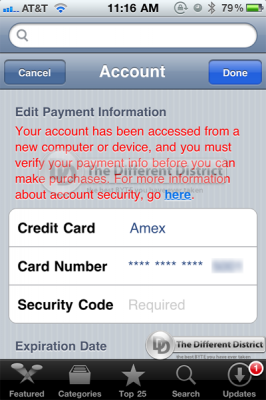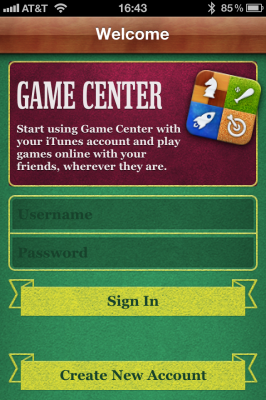News tagged ‘developers’
Facebook to Get Location Service “Places” for iPhone
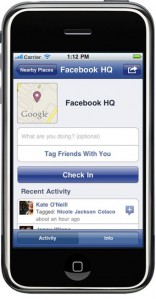 Mark Zuckerberg, CEO and founder of Facebook, a well as other developers, engineers and partners have announced a new application called Facebook Places, which is able to determine the location. It's a bit like Foursquare and Gowalla, which allow identifying places where you've been to share them with all your friends and family on Facebook. You can see which of your friends are now being in the same place and who of them has already been there. Of course, you can change everything in your privacy settings, and select those users who are your friends on Facebook, so they can see your places. Facebook also plans to maintain a complete history of places that you have done on a special page in the Internet.
Mark Zuckerberg, CEO and founder of Facebook, a well as other developers, engineers and partners have announced a new application called Facebook Places, which is able to determine the location. It's a bit like Foursquare and Gowalla, which allow identifying places where you've been to share them with all your friends and family on Facebook. You can see which of your friends are now being in the same place and who of them has already been there. Of course, you can change everything in your privacy settings, and select those users who are your friends on Facebook, so they can see your places. Facebook also plans to maintain a complete history of places that you have done on a special page in the Internet.
Existing location-based services, such as Foursquare, Gowalla and Yelp are also announced as partners. So you can still use these services, but now they integrate with Facebook “Places”, which allows publishing their data on the wall of Facebook.
Nokia Acquires Motally To Rival with Apple
New report from Associated Press reveals that this Friday Nokia acquired a company named Motally, though there was no information on the terms of the deal. Such a strategic move is pointed on boosting Nokia's Ovi platform and making it more interesting for mobile software developers.
"The Finnish company says the acquisition Friday underscores its attempt to improve mobile Web browsing analytics for software developers of its Internet services, that are struggling to match competitor Apple Inc."
Motally is a small analytics firm that was founded in 2008 and has only eight employees.
Apple did not acquire any analytics firms yet though it has strong partnership with a few of them.
iPad Helps Children with Autism
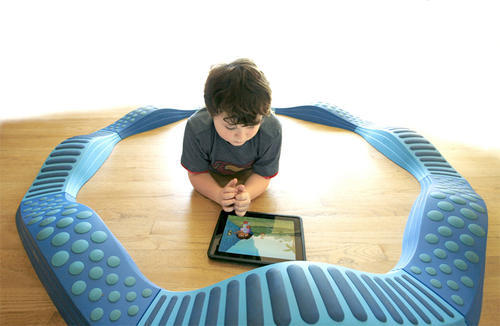
Last week, SFWeekly has published reports about how the iPad is helping children of autism. The publication visited the family of Leo Rosa, a nine-year old that suffers from autism. Despite his limitations, Leo is learning to communicate better with his family thanks to a new iPad.
Since the iPad’s unveiling in April, autism experts and parents have brought it into countless homes and classrooms around the world. Developers have begun pumping out applications specifically designed for users with special needs. Through the devices, some of these children have been able to communicate their thoughts to adults for the first time. Others have learned life skills.
For Leo, the introduction of the iPad into the family home has been life-changing. Leo’s mother won the iPad in a school raffle for $5. She stated:“With the iPad, Leo electrifies the air around him with independence and daily new skills”.
Apple's iAd blows away competing ads
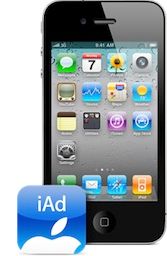
First Apple’s iAd was Nissan Leaf ad. Users who viewed Nissan's Leaf electric car iAd spent 90 seconds with the interactive advertisement -- ten times longer than customers will spend with a traditional ad. Moreover, people are five times more likely to click on interactive advertisement than they are a traditional online display ad. One more proof of iAd success was made by Unilever, maker of Dove shower products, said its initial advertisement proved to be successful, with 20 percent of viewers checking the ad multiple times, and a percentage in the double digits seeking further information about the product. iAds are also popular among iPhone users, because they don't have to leave their app and launch a browser to view them.
iAd success helps Apple to take up more than half of the mobile advertising market in 2010. And developers, too, have found success with the new iAd platform: Apple providing them a 60 percent cut of the advertising revenue.
iOS 4.1 beta 3 Has Been Released

Yesterday Apple released iOS 4.1 beta 3 for developers. Build number is 8B5097d for the firmware and 10M2308 for the SDK. Here is what's new in beta 3:
- A revised API that allows applications to have an access to contact thumbnail pics;
- Media playback enhancements, which include new classes in AV Foundation, related to batched playback, writing/reading and file compression;
- New features of Game Center: now players can track their in-game achievements and game scores on leaderboards and find teams for group play. But it was also found that Game Center is no longer supported for iPod touch 2G and iPhone 3G, though it is unknown whether it is a permanent change or not.
Final release of iOS 4.1 is expected to be shipped in September or October.
Apple Improved iTunes Store Security
As you remember, few weeks ago iTunes Store was hacked and the top list of the Books category had been filled with a bunch of obscure books. That was achieved by a number of unauthorized charges that were made on accounts of several iTunes users, who eventually lost few hundred dollars. In turn Apple deleted developers who were found to use the fraudulent purchases.
These days Apple added new layer of security which now require every user to enter the security code of their credit card each time they register a new device or computer with their account, according to Different District blog. So if earlier malicious user just needed to guess a password for the account in order to receive and/or resell the acquired information to fraudulent buyers, after Apple’s security innovation it will require more efforts to do that.
RedSn0w is able to jailbreak iOS 4.1 beta 2

MuscleNerd tweeted today that the recent redsn0w utility is able to jailbreak the iOS 4.1 beta2 on iPhone 3G and iPod Touch 2G. This is useful for developers only, however good news for everyone.
Here's some info from the DevTeam wiki page:
iOS 4.1 Beta 2 Released
Apple released beta 2 of upcoming iOS 4.1. Developers can download ше and new SDK .
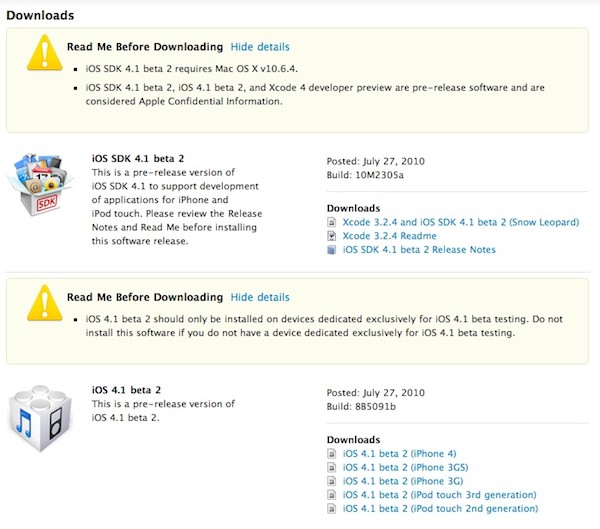
iOS4 vs. WP7 in Browser Speed Test
This week developers started receiving Microsoft’s test units, which will allow them to test the performance of their apps for WP7 instead of using an emulator. The test smartphones are produced by Samsung and LG and have a Technical Preview version of Windows Phone 7, and guys at NewsGeek decided to compare its browser speed with iPhone 3GS' that runs on iOS 4.
Since the difference in speed is so huge it is noted that both of the phones used 3G network (not Wi-Fi) and iPhone 3GS is a completely finished product, while Samsung's test unit is a prototype with an unfinished OS that is still in development.
Newsgeek also found Internet Explorer in the Windows Phone 7 to be "surprisingly competent and quick" though it was mostly built off of IE7's desktop version.
iOS 4.0.1 SDK Released
Following the release of the 4.0.1 firmware for iPhone and 3.2.1 for iPad Apple has released the SDK to go with it. Although the update seems like nothing, and is really is nothing, developers need to update in order to run their apps on new iOS 4.0.1 iPhone or 3.2.1 iPad.
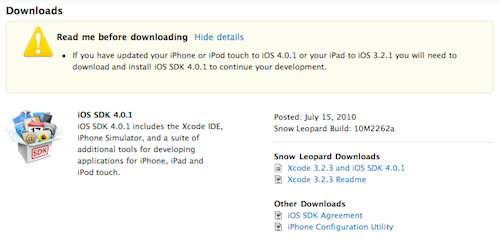
What's new in iPhone iOS 4.1 beta
Apple released iOS 4.1 beta and SDK for developers. Here is a quick look at the changes:
- Larger signal bars.
- New look of Game Center.

iOS 4.1 SDK Released
Today, Apple has released iOS 4.1 beta for developers. The SDK and a beta OS install for iOS devices is now available via Apple developers site. We will update with new features as we find them, including antenna fixes.

Chatroulette Clone Released for iPhone 4

New app has been released in iTunes Store - it's called iChatr and it mimics Chatroulette. As it uses the front facing camera to create random video chat, the app is currently available only for iPhone 4 users.
So if you want to meet new person in your life, just use iChatr. The only problem is that developers for some reasons didn't make support for iPhone's speakers, so you'll need to use headphones.
You can download iChatr for free . But be aware that one way video chat with older iPhone model will not work.
UPDATE: video test after the break.
Read the rest of this entry »
 Leave a comment, read comments [1]
Leave a comment, read comments [1]
July 4th iPhone games sale from Gameloft, EA, Glu, Namco and More

Four of the biggest iPhone and iPad game developers have discounted a selection of their games for the July 4th holiday. Hurry up. Here is the list:
Gameloft:
- , $4.99 > $0.99
- , $4.99 > $0.99
- , $4.99 > $0.99
- , $4.99 > $0.99
- , $4.99 > $0.99
- (iPad), $4.99 > $0.99
- (iPad), $4.99 > $0.99
Flash is ported to the iPad
Flash has been ported to the iPad. Unofficially of course. The project is called Frash and is basically a port of Adobe Flash runtime for Android running on iPad using a compatibility layer. Its coming from a well known iPhone hacker named comex.
The YouTube description of the video explains everything about the port as follows.
Frash is a port of the Adobe Flash runtime for Android to the iPhone, using a compatibility layer, by comex ( http://twitter.com/comex ). Frash can currently run most Flash programs natively in the MobileSafari browser. Frash currently only runs on the iPad, but support for other devices (3GS+ only due to technical restrictions) is planned, as well as support for iOS 4.
A release is planned for when Frash is stable. Developers are welcome to join the effort at http://github.com/comex/frash – fork it and send a pull request with your patches.
Shot on an iPhone 4 and edited using iMovie on the phone.
Take a look at the video:

